Samantha had been dating her boyfriend, Ryan, for six months when she began to feel like she was experiencing unintentional gaslighting. They had a great connection and enjoyed spending time together, but Samantha began noticing that Ryan would often contradict her. For example, she would say that she didn’t like a particular restaurant and Ryan would insist that she had told him she loved it.
Samantha initially brushed off the miscommunications with Ryan, but over time, she began to question her memory and sense of reality. After speaking to a friend, she recognized Ryan’s invalidation of her experiences and the confusion and anxiety it caused her. When she talked to Ryan, she realized he had no idea how deeply his words were affecting her. It was a classic case of unconscious gaslighting – an experience many people go through.
When that happens, it can lead to a swarm of questions in your mind. Depending on your awareness of the subject, these can range from, “What does the term gaslighting even mean?” to “Do gaslighters know they are gaslighting?”, “Is gaslighting unintentional ever?” In this article, Anushtha Mishra (M.Sc. Counseling Psychology) with a specialization in trauma, relationship issues, depression, anxiety, grief, and loneliness, sheds light on what unintentional or unconscious gaslighting is, how it affects relationships, and how to respond to it
What Is Unintentional Gaslighting?
Table of Contents
Unintentional or accidental gaslighting in relationships is when someone disarrays your head by making you doubt your thoughts, feelings, or experiences, albeit without malicious intent — which makes it different from narcissistic gaslighting or conscious gaslighting. The lack of maliciousness notwithstanding, it is still a form of psychological abuse.
It’s when your significant other insists that you love sushi, even though you are fully aware you hate it. Or when one partner tells the other partner that they’re overreacting to something that bothers them. When repeated over and over again, it can leave the affected person feeling like they’re losing their grip on reality.
Can gaslighting be unintentional?
Yes, gaslighting can be unintentional when it is done without the intent to manipulate or control someone’s perception of reality, or even without the self-awareness of the impact of one’s choice of words and actions on the other person. Now that you know the answer to can gaslighting be unintentional, it’s likely led to the next obvious question: why would someone gaslight a person they love, even if it’s done unconsciously?
Well, unconscious gaslighting can happen for a variety of reasons:
- Lack of awareness: The person resorting to gaslighting unintentionally may not be aware of the impact of their actions and words on others — as in the case of Samantha and Ryans
- Protecting self-image: An individual may resort to accidental gaslighting to protect their self-image by downplaying other’s concerns. It’s an attempt at warding off criticism and maintaining a sense of control
- Learned behavior: It can be a behavior learning in childhood as a self-preservation mechanism. This is common among people who grow up in abusive or toxic environments
- Dealing with insecure attachment style: In such cases, a person may invalidate their partner’s experiences and perspectives as a way of dealing with their own insecurities
- Difference in perspectives: Sometimes, accidental gaslighting may just be an outcome of two people remembering or perceiving events differently. In such cases, a person’s genuine recollection of the event may clash with the other’s, leading to confusion and self-doubt
Related Reading: Decoding The Gaslighter Personality – Why Some People Make You Question Your Sanity
How gaslighting affects a relationship even when it is unintentional
So, do gaslighters know they are gaslighting? Not always. Can gaslighting be unintentional? Yes, absolutely. Nonetheless, it can still be hurtful to a relationship and impact the mental well-being of both partners — the one gaslighting unconsciously and the one at the receiving end of it. The effects are more pronounced on the person being subjected to it. It can even lead to,
- Feeling like you’re going crazy
- Doubting your reality and thoughts
- Lowered self-esteem
- Mental disorders such as PTSD
You might find yourself constantly second-guessing your judgment, feeling anxious, uneasy in the relationship, or even paranoid. It can be especially tricky since it’s done unintentionally and can leave you feeling confused and unsure about what’s really going on. After all, the person perpetuating it does seem to care about your feelings.
11 Signs Of Unintentional Gaslighting In Relationships – With Examples
Is gaslighting unintentional also? If so, how do you recognize it, and more importantly, tell it apart from conscious gaslighting done with malicious intent? The first step in figuring it all out is to keep your mind and reality intact. Doing so helps you stay grounded in your thoughts, feelings, and experiences, without getting sidetracked by manipulation in the relationship.
This mental self-defense mechanism keeps you from going crazy and feeling like you’re losing your grip on reality. Once you’ve done this groundwork for protecting yourself, you’ll be better equipped to spot the sneaky signs of unintentional gaslighting. We list the 11 most common ones below, along with unconscious gaslighting examples:
1. Memory manipulation happens often
If your partner tries to convince you that your memory is incorrect or faulty, even when you know for certain that you are right, it is unconscious gaslighting and it’s a form of emotional manipulation. They may try to convince you that you didn’t hear them say something, or that you misunderstood what they said. This can make you feel like you’re losing yourself and your mind and can lead to a loss of confidence in your perceptions. One of the classic unconscious gaslighting examples in this context is saying, “I never said that, you must have misunderstood me.”
Examples of memory manipulation
- Your partner accuses you of saying something hurtful to them, but you know for a fact that you never said it in
- Your date promised to meet you at a specific time and place, but they don’t show up and then go on to deny ever agreeing to meet you there
Related Reading: Mind Games In Relationships — What They Look Like And Why People Do It
2. You are being emotionally invalidated
One of the classic gaslighting forms is when someone dismisses or invalidates your emotions, making you feel like your feelings don’t matter. So, if you’re wondering, “Is it gaslighting if it’s unintentional?”, know that if it makes you feel like your emotions are not valid, it amounts to gaslighting. Whether or not it’s done consciously is secondary.
Experiencing unconscious gaslighting in relationships can look something like this: your partner tells you you’re overreacting or that your emotions are unwarranted whenever your feelings or reactions are uncomfortable for them. This can make you doubt your own feelings and can lead to feelings of shame or inadequacy with lowered self-esteem.
Examples of emotional invalidation
- Your partner tells you to “stop being so sensitive” when you express hurt feelings about something they said
- They respond with, “You’re overreacting, it’s not a big deal” when you express frustration/displeasure

3. Reality-twisting is a norm in your relationship
This translates into a scenario when someone distorts the truth or changes the facts of a situation to manipulate your understanding of reality. They may deny things that actually happened, or twist the facts to make themselves look better. Toxic positivity also falls under this where they deny the validity of your negative emotions and replace them with positivity. This can make you feel like you can’t trust your perception of reality and is a form of indirect gaslighting.
Examples of reality-twisting
- Your partner tells you that they cleaned the entire apartment, but when you come home, you see that nothing has been cleaned
- They might say something that goes like, “That never happened, you must be imagining things.” or “Stop being so negative, just focus on the good things in life!”
Related Reading: 9 Common Narcissist Gaslighting Examples We Hope You Never Hear
4. Blame game boomerang plays on and on
One of the indirect gaslighting tactics is when someone blames you for something they did or makes you feel responsible for their actions. They may tell you that you provoked them, or that you made them act the way they did. This can make you feel guilty and can lead to feelings of shame, low self-esteem, or self-blame especially because it takes place in such a subtle form.
“If you hadn’t made me angry, I wouldn’t have yelled at you.” “Look what you made me do.” “I don’t want to hit you. Why do you make me so angry?” These are somethings a person may say when they’re unintentionally gaslighting you to cover up their misdeeds.
Examples of blame-shifting
- A partner with a gaslighter personality blames you for not taking care of chores/errands even though it was their responsibility
- Your partner may blame you for their angry outbursts, saying that you “made them” upset
5. Selective amnesia syndrome – A condition your partner may exhibit
Another form of emotional manipulation is when someone conveniently forgets important details or previous conversations in order to manipulate the situation. They may claim that they don’t remember promising you something, or that they don’t remember a conversation you had. This type of unintentional gaslighting in relationships makes you lose your self-confidence in your own memory when they say casually over and over again, “I don’t remember that.”
Example of selective amnesia syndrome
- Your partner forgets that they promised to help you with household chores, and then gets upset when you ask for their help
- Or they claim they didn’t know you were allergic to a certain food even though you had discussed it with them before
6. Gaslighting by omission
One of the telltale signs of emotional abuse is when someone deliberately withholds information or leaves out important details to manipulate your understanding of a situation. They may not tell you something important that you need to know, or they may leave out a key detail that would change the way you perceive a situation.
This kind of unintentional gaslighting in relationships makes you feel like you’re not getting the whole story and can lead to you feeling confused and ignite mistrust. A classic tale as old as time is covering up these actions by saying, “I didn’t tell you because I didn’t want to hurt your feelings.”
Examples of gaslighting by omission
- Your partner doesn’t tell you that they spent a large amount of money without consulting you, and then acts surprised when you’re upset about it
- Your partner hides their past from you and then accuses you of snooping around when you find out that the person they claim to be their best friend is also their ex
7. Inversion insanity is real
Unintentional gaslighting in relationships is when someone turns the tables on you and accuses you of doing something wrong or being unreasonable when it was actually them. It is not the same as having a different opinion because here the other person is declaring, “You’re wrong, I’m right”, with a complete disregard for facts. This is a form of unintentional emotional abuse as it can make you feel like you’re crazy and lead to a loss of confidence in your perceptions. It may leave you wondering if you can ever figure out know how to stop unintentional gaslighting.
Examples of inversion insanity
- Your partner accuses of you misplacing their favorite shirt even though you know for a fact that they lost it
- Your Tinder date accuses you of being too busy for them when in reality they’ve been ignoring your messages and calls
Related Reading: 13 Signs He Disrespects You And Does Not Deserve You
8. Power play pandemonium goes on
Is it gaslighting if it’s unintentional? Yes, it is because when someone uses their position of power or authority to manipulate you, they have a gaslighter personality — even if they don’t know it yet. They may use their power to intimidate you or to make you feel like you don’t have a choice in the matter, resulting in a power struggle in the relationship. This can very well happen in a romantic relationship, making you hurt, trapped, or powerless, and can lead to feelings of fear and anxiety.
Examples of gaslighting through power play
- Your spouse has control over the finances, making all the decisions about how money is spent, saved, or invested with no regard for your needs/opinion on the matter
- Your boyfriend/girlfriend may guilt-trip you into staying home and spending time with them when you actually want to hang out with your friends
9. Flattery is all over the place
A gaslighter may use fake compliments, flattery, or love-bombing to manipulate you. They may tell you that you’re the best at something, or that you’re the only one who can do something, in order to get you to do what they want. This can make you feel good in the moment but it also makes overcoming gaslighting that much more difficult. Unconscious gaslighting examples involving flattery can sound like, “You’re so smart, I don’t know what I’d do without you.”
Examples of flattery as a tool of unconscious gaslighting
- Your partner tells you that you’re the only one they can trust, and then asks you to lie for them
- Or they get out of helping you ahead of a dinner you’re hosting, saying their skills don’t hold a candle to yours when it comes to cooking or sprucing up the place
10. Gaslighting by comparison
This happens when someone compares you unfavorably to others to make you feel inadequate or unworthy. They may tell you that you’re not as good as someone else, or that you don’t measure up. For instance, “Why can’t you be more like your sister? She never complains.” This can make you feel inferior and can lead to feelings of insecurity, self-doubt, and low self-esteem.
Examples of gaslighting by comparison
- Your partner tells you that their ex was more attractive than you
- Or they tell you to learn from their best friend’s partner, who is a lot more “chilled out and easygoing”
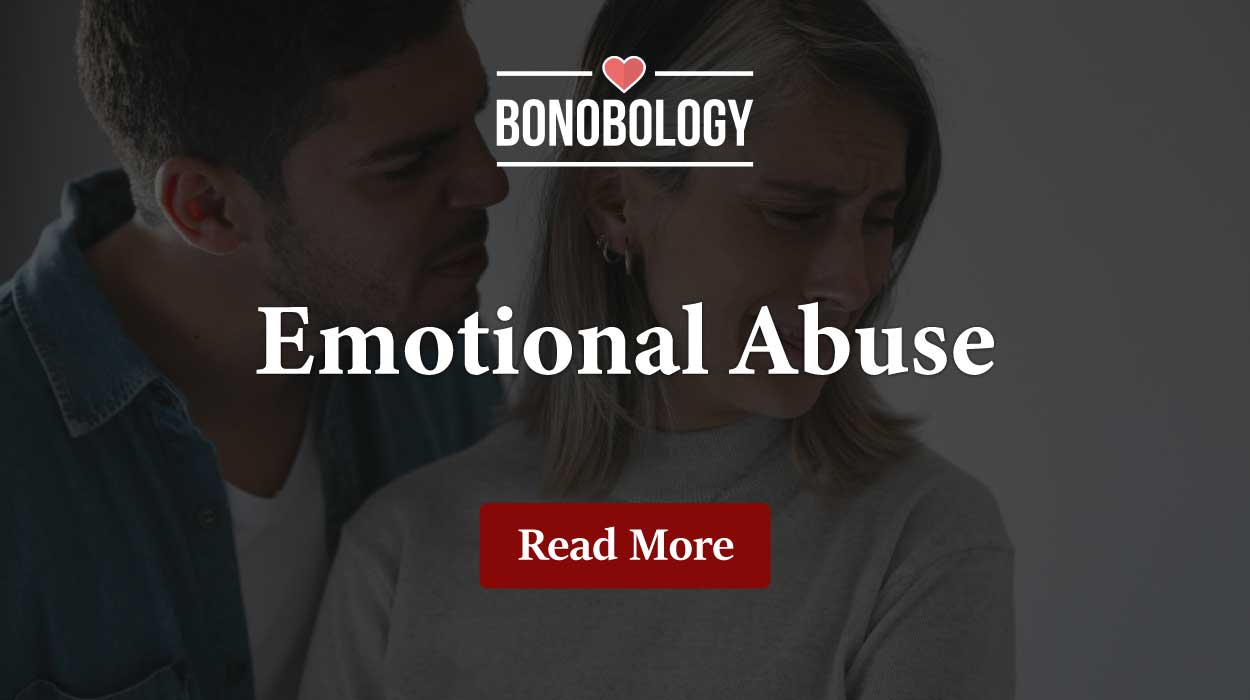
11. Insidious inconsistencies all the time
It is when someone deliberately or unintentionally contradicts their partner’s experiences or memories, leading them to doubt their perceptions of reality. It can start with small things like forgetting a promise or denying a conversation took place, but over time, it can escalate into a pattern of control and manipulation that erodes the victim’s sense of self and agency in the relationship. This also includes instances when someone says something and then denies it completely. It’s like saying, “I never said that, you must have misunderstood me”, followed by, “Oh, I remember now, I did say that”.
Examples of inconsistencies amounting to gaslighting
- Your spouse claims to support a decision you have made but then criticizes you for it behind your back with their family
- Your partner tells you that they’ll take care of something, but then doesn’t follow through and blames you for not doing it
Unintended gaslighting is often the result of unconscious behaviors that can have a significant impact on the person on the receiving end. It’s important to understand that the impact of gaslighting abuse can be insidious and long-lasting, even if the person doing it is not aware of their behavior.
Related Reading: 11 Signs Of Dishonesty In A Relationship
How To Stop Unintentional Gaslighting From Happening To You
If any of these signs of unintentional gaslighting sound relatable and you have noticed these patterns in your relationship, we can understand how confusing and emotionally exhausting the experience can be. The next order of business is to help you figure out how to stop unintentional gaslighting, or at the very least, cope with it effectively. For that, it’s essential to take care of yourself and your mental health. Remember that your feelings and experiences are valid, and you deserve to be treated with respect and empathy.
By prioritizing your emotional well-being, you can begin to regain a sense of control and heal from the effects of unintentional emotional abuse. Here are some steps you can take to protect yourself by overcoming gaslighting and establishing more authentic communication in your relationships:
1. Recognize the signs
Knowing the signs and behaviors associated with unconscious gaslighting can be an invaluable tool in identifying and addressing it. Keeping an eye out for patterns such as constantly questioning or invalidating one’s reality, dismissing one’s thoughts or feelings, or feeling like one is losing touch with reality can help individuals recognize unintended.
This recognition can empower individuals to take action to protect their emotional and mental well-being. By communicating openly and setting boundaries with the person unintentionally gaslighting them, individuals can help ensure that their relationships are built on a foundation of respect and mutual understanding.
Related Reading: Signs Of An Abusive Relationship: Emotionally, Verbally, Mentally
2. Set boundaries
It’s important to set boundaries for yourself and clearly communicate them to the other person to stop gaslighting without malicious intent. You may want to take some time for self-reflection on what those boundaries are and what you need in order to feel safe and respected in the relationship. When you’re ready, approach the other person in a calm and non-confrontational way, and let them know how their behavior is affecting you. Some of the ways you can do that are by,
- Use “I” statements to avoid blaming or using accusatory language
- Be specific about the actions or behaviors that are causing you distress, and make it clear what you need from them to feel heard and understood
- Suggest some ways that they can support you, such as acknowledging your feelings or validating your experiences
Remember that setting boundaries is an ongoing process, and it’s okay to adjust them as needed for the sake of your well-being
3. Practice self-care
Experiencing unintentional gaslighting can be emotionally draining, bringing in a lot of negative feelings, and it’s important to prioritize your mental health and well-being. Some ways to take care of yourself are by,
- Practicing meditation, yoga, or exercise to center yourself
- Engaging in activities that bring you joy can also help boost your mood and reduce stress
- Surrounding yourself with supportive friends and family who can offer you emotional support and a listening ear
Remind yourself that taking care of yourself is essential and seeking help when needed is a sign of strength, not weakness.
Related Reading: 30 Self-Care And Wellbeing Gift Ideas – Because You Deserve The Best
4. Seek therapy
In some cases, seeking professional help from a licensed therapist or counselor may also be beneficial in bringing self-awareness, and processing the emotions and trauma caused by the experience of unconscious gaslighting. Seek support as it can help you heal from the effects.
A trained therapist can help you identify and address any underlying issues, build coping skills, and establish healthier communication patterns in your relationships and if the case be, help you through the steps to responsibly leave a relationship.
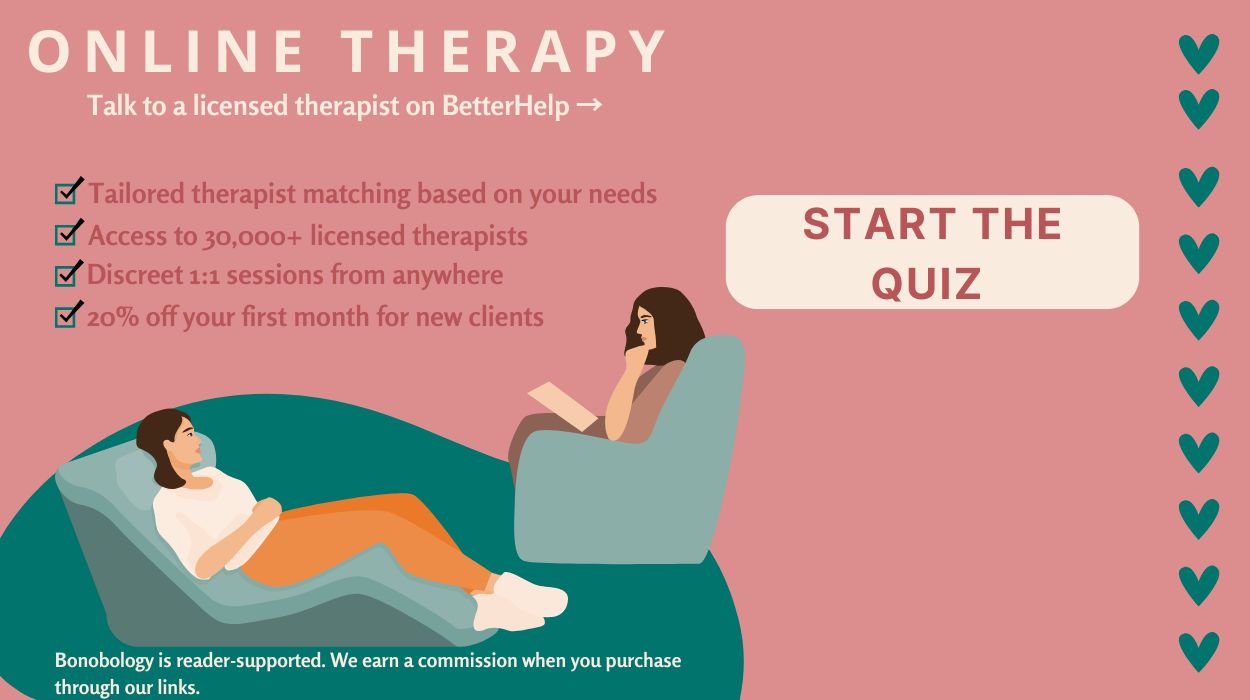
Key Pointers
- Unintentional gaslighting is a form of psychological abuse where someone makes you doubt your own thoughts, feelings, or experiences without realizing it
- Some of the signs include emotional invalidation, blame game, making you doubt your memory, power play, and more that are mentioned above
- Recognizing the signs, seeking support, setting boundaries, and practicing self-care are some of the ways you can stop unintentional gaslighting from happening to you
Unintentional gaslighting is a sneaky form of manipulation that can leave you feeling like you’re losing your mind and leave you so confused that you start to wonder, “Do gaslighters know they are gaslighting?” But fear not, now that you know the signs and how to protect yourself, you can take charge of your relationships and set boundaries that prioritize your mental health and well-being. Also remind yourself that regardless of the gaslighter’s awareness of their behavior, the effects are just the same. Don’t let insidious inconsistency and power play get in the way of building authentic connections. Stay true to yourself, speak up for what you need, and keep on shining like the bright star you are!
FAQs
If you are asking, is there such a thing as unintentional gaslighting? Then yes, someone can gaslight you unintentionally. They might not even know that their behavior is causing you to question your sanity. It’s like a game of emotional Jenga, where one wrong move can make the whole tower come crashing down. So, it’s important to be aware of the signs with unconscious gaslighting examples for your reference and communicate your boundaries to protect yourself.
If you’re unintentionally gaslighting someone or tend to manipulate people, take a step back and listen to your victim’s mind, and their perspective without invalidating it. Communicate openly, acknowledge your mistakes and the cognitive dissonance that might be present, and build a relationship based on trust and respect. Remember, it’s never too late to change your behavior and make things right.
7 Expert Tips On How To Stop Being Controlled In A Relationship
6 Steps To Take If You Are Feeling Trapped In A Relationship
Your contribution does not constitute a charitable donation. It will allow Bonobology to continue bringing you new and up-to-date information in our pursuit of helping anyone in the world to learn how to do anything.



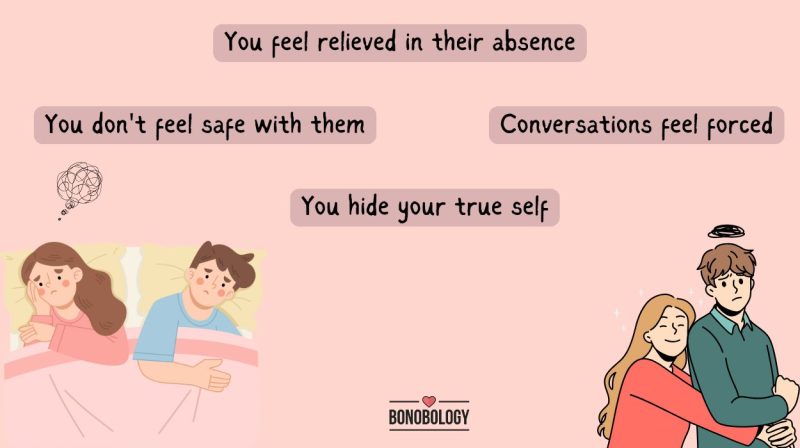
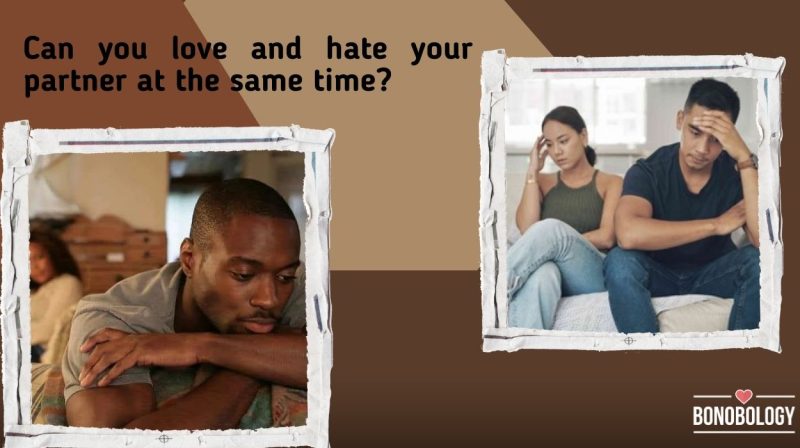

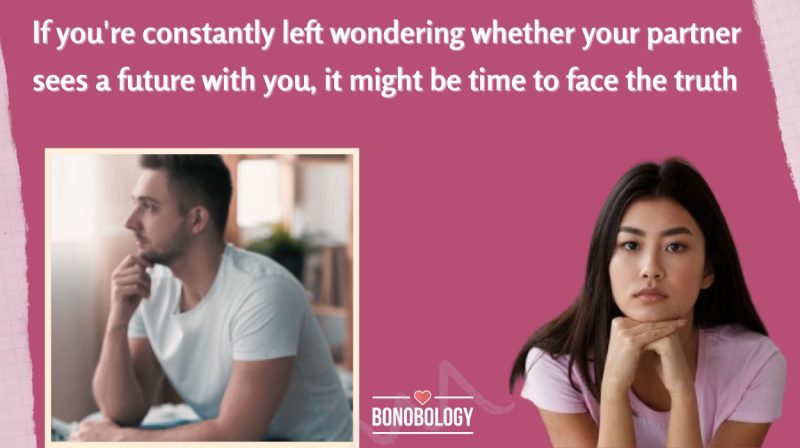
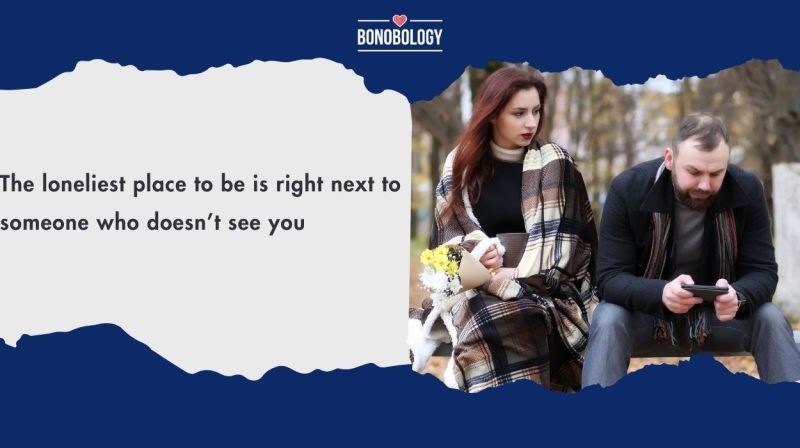
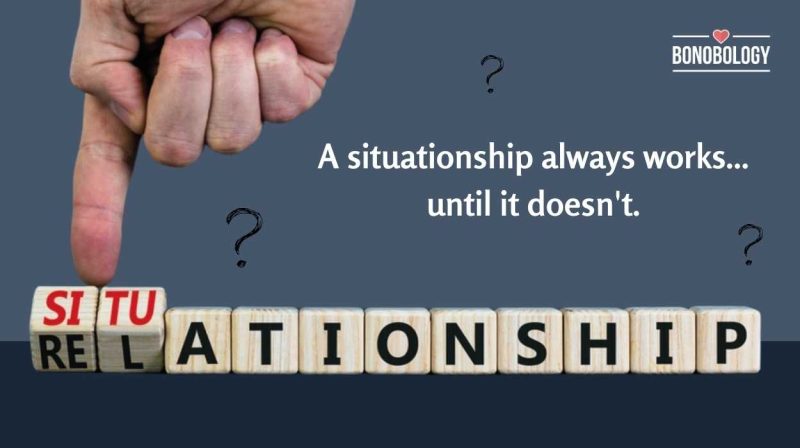
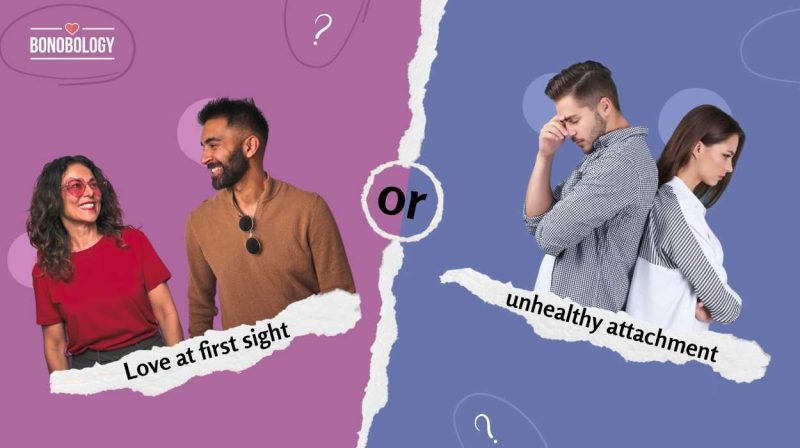
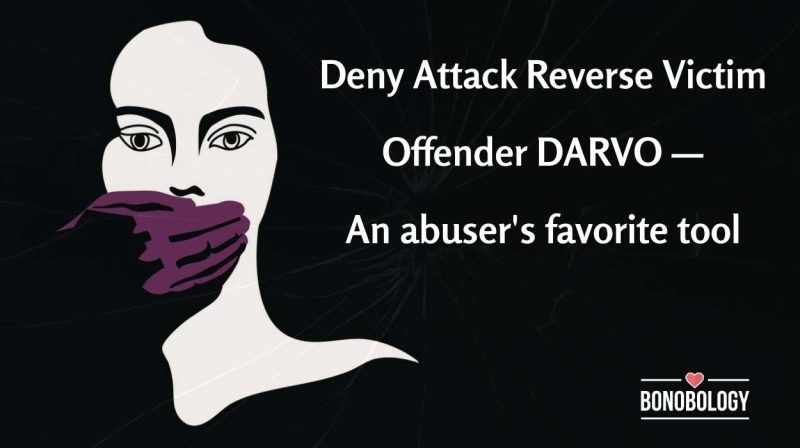
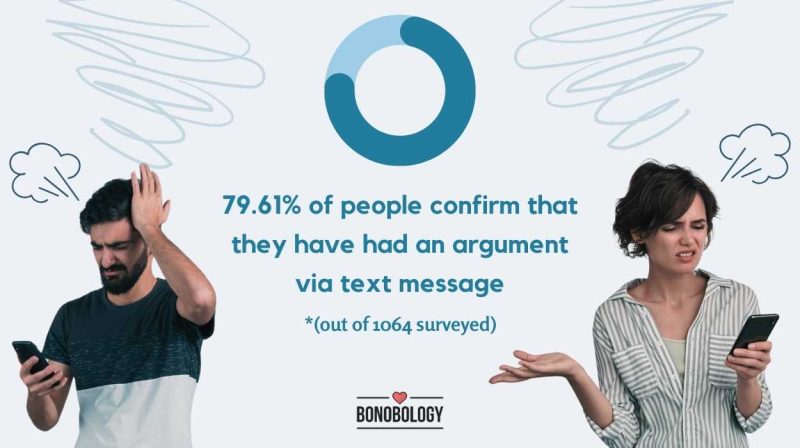
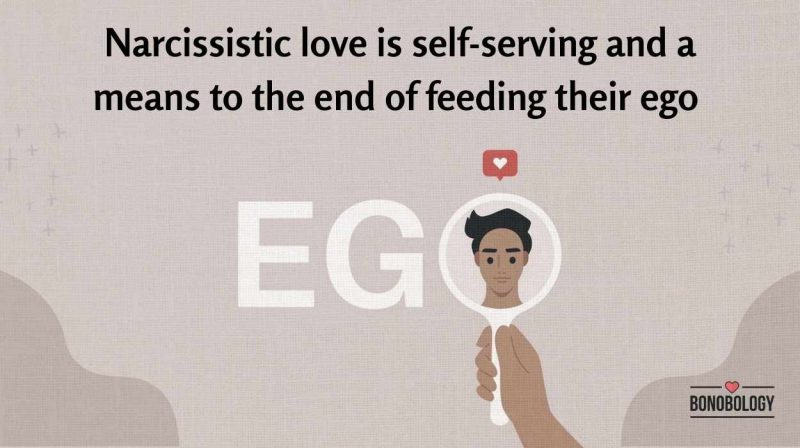
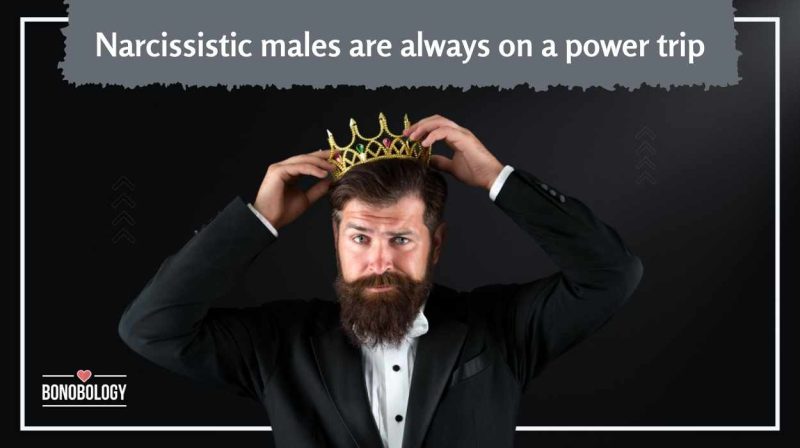
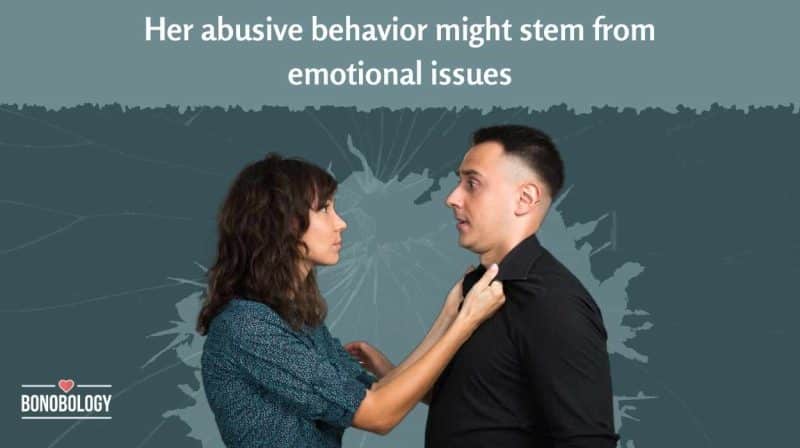
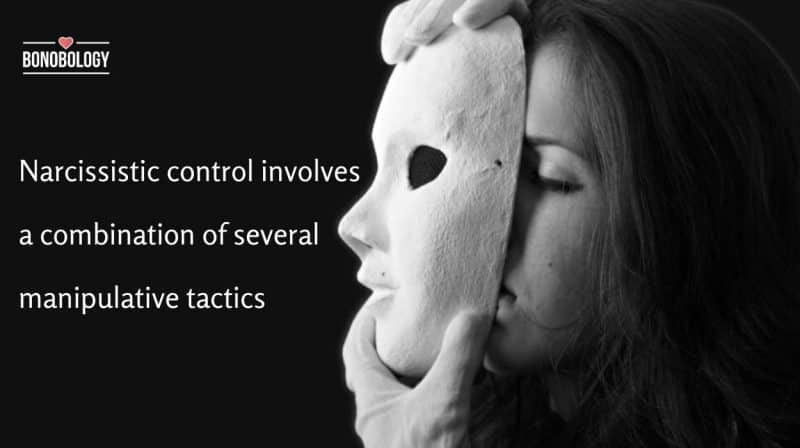
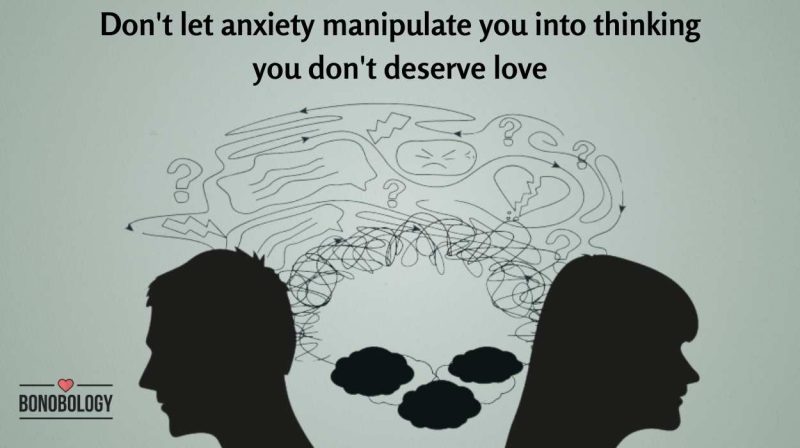
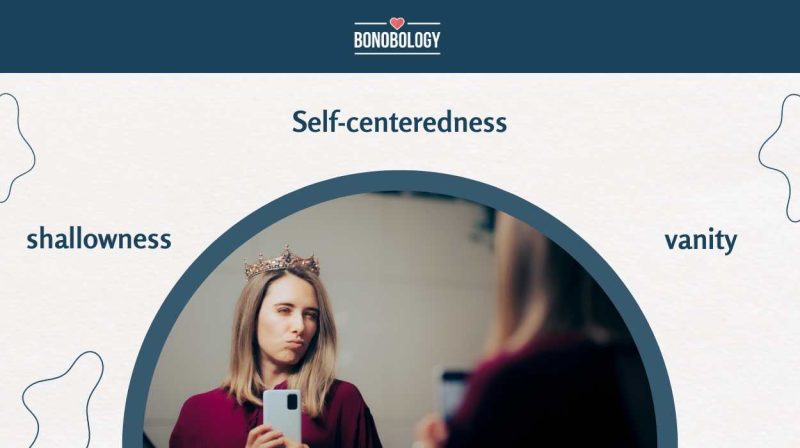
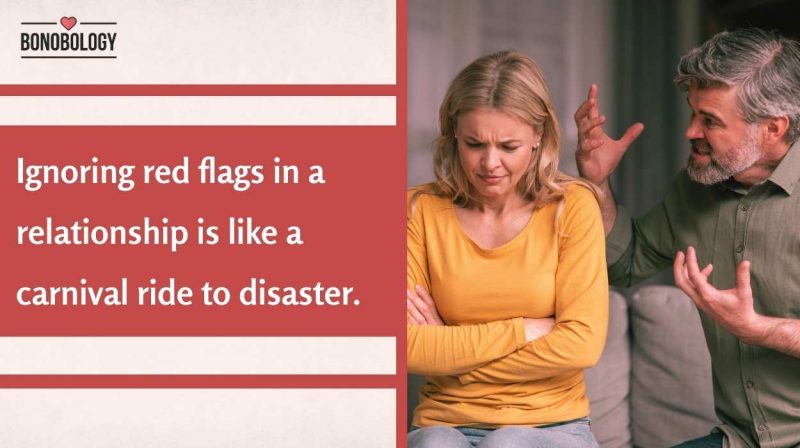
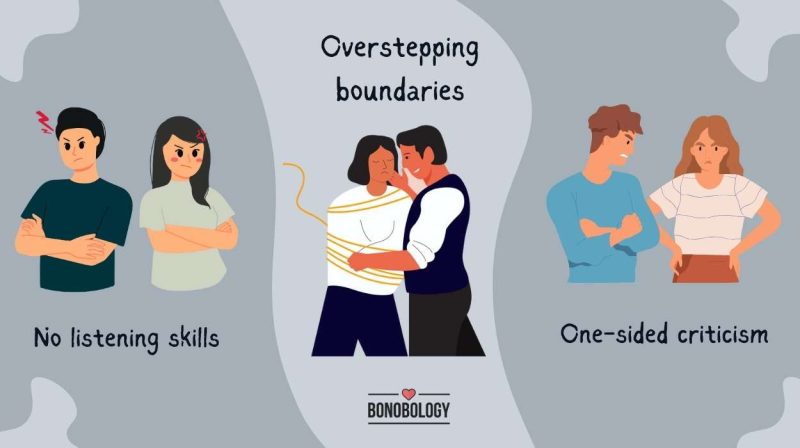
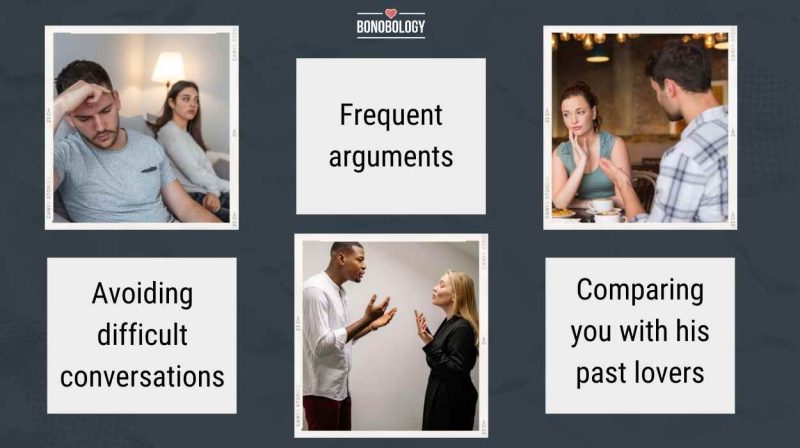
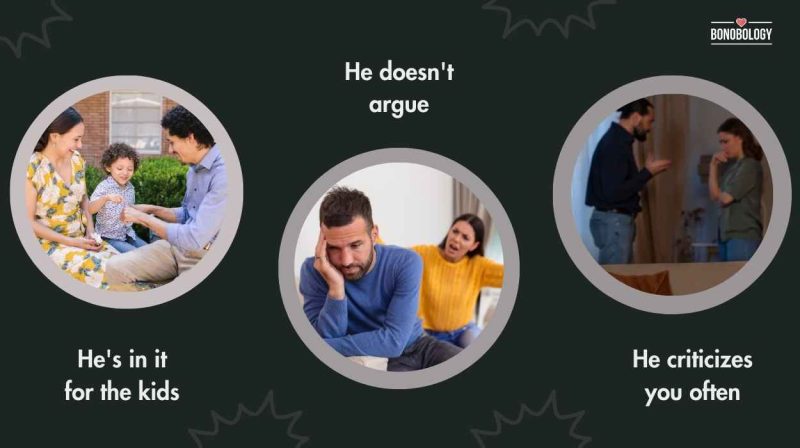
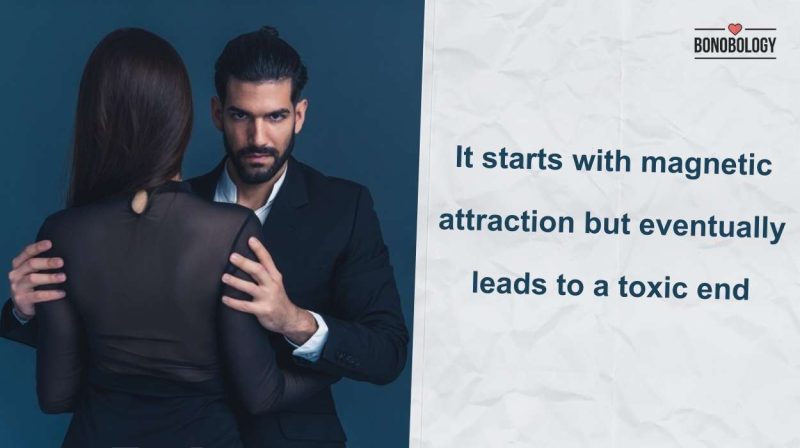
Featured
21 Subtle Signs You’re Not Really In Love With Your Partner
I Hate My Girlfriend: Why You Feel This Way And What To Do
When Health Challenges Affect Your Relationship Dynamics
5 Harsh But True Signs He’ll Never Marry You
21 Signs That You Are Alone In A Relationship
11 Situationship Red Flags You Should Know About
Why Do I Get Attached So Easily? 9 Possible Reasons and Ways to Stop
How To Respond To DARVO: Expert Lists 7 Strategies
What Is Fexting, And Why Is It Bad For Your Relationship?
Are Narcissists Capable Of Love?
11 Prominent Male Narcissist Traits to Watch For
Why Does My Girlfriend Hit Me? Expert Shares 11 Possible Reasons And Ways To Cope
How Does A Narcissist React When They Can’t Control You?
“My Anxiety Is Ruining My Relationship”: 6 Ways It Does And 5 Ways To Manage It
13 Distinctive Traits Of Female Narcissists Revealed
Recognizing The 13 Red Flags Of A Controlling Relationship
What Are The Examples Of Narcissistic Behavior In A Relationship?
11 Signs He Is Forcing Himself To Love You
21 Signs The Relationship Is Over For Him and How To Deal With It
21 Stages Of A Narcissistic Relationship With An Empath